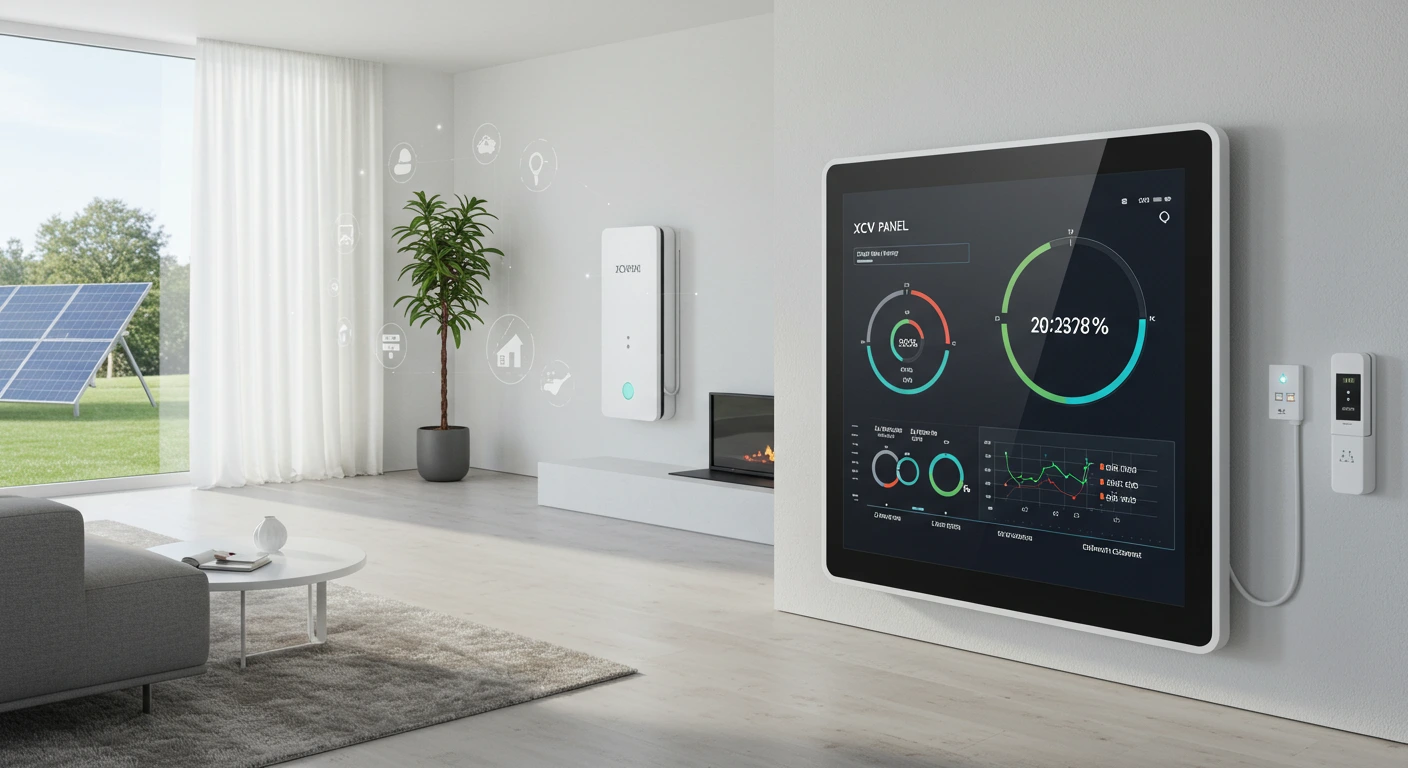
Home & Decor Blogs: DIY, Interior Design & Lifestyle Ideas
XCV Panel: Efficient Home Power Management

If you’ve ever looked at your electricity bill and wondered, “Where on earth did all that power go?”, you’re not alone. With modern homes packed with smart devices, appliances, and growing energy needs, managing electricity has become a real headache. Add in power cuts, surges, and rising rates, and you’ve got the perfect recipe for frustration.
Enter the XCV Panel a smart, efficient way to take control of your home’s power. This isn’t just another breaker box; it’s like the “brains” of your home’s electrical system, balancing loads, reducing waste, and even syncing with solar and battery setups. We’ll take a deep dive into what makes the XCV Panel different, how it works, its benefits, real world performance, costs, and whether it’s truly worth investing in.
Stick around, because by the end you’ll know if the XCV Panel is your ticket to lower bills, fewer headaches, and smarter living.
What Is the XCV Panel?
Think of the XCV Panel as the traffic controller of your energy use in home. Instead of letting every device and appliance run wild, it manages them efficiently. It monitors usage, balances loads across different circuits, integrates with renewable sources like solar, and keeps your home improvement safe from surges or overloads.
Unlike traditional panels that only “cut power when things go wrong,” the XCV Panel is proactive. It’s designed to optimize your power before problems happen, which means smoother performance and fewer surprise outages.
Why Efficient Power Management Matter
Electricity is no longer a flat expense. Many utilities now charge more during peak hours, making when you use power just as important as how much you use. On top of that, modern households are dealing with:
- More gadgets and appliances than ever.
- Rising electricity rates.
- Increased demand for backup solutions (solar panels, inverters, batteries).
- Safety risks due to older wiring and power surges.
The XCV Panel helps solve these issues by managing energy smarter, not harder.
Feature That Make the XCV Panel Stand Out
Real Time Monitoring
The XCV Panel gives you a live view of where your power is going. That means you can finally answer the age old question: “Why does the bill keep going up?” Spoiler: it’s probably the fridge you bought in 2008 or the water heater that runs longer than you think.
Load Balancing
No more overloading single circuits. The panel spreads demand evenly, so your home avoids flickering lights and tripped breakers.
Solar and Battery Integration
If you’ve got solar panels or a backup battery, the XCV Panel makes sure everything plays nicely together. It can prioritize solar power when the sun’s out and switch to backup storage during outages.
Safety First
Surge protection, overload prevention, and temperature monitoring help prevent accidents. In high-risk regions, that’s peace of mind worth every penny.
Real World Performance: Does It Work?
Plenty of products promise efficiency but fail in practice. Here’s what testing and user reports show:
- Bill savings: Homes reported cutting 10–20% off their bills within a year, mostly thanks to better control of “phantom loads” (appliances drawing power when not in use).
- Stability: Blackouts became less stressful since the panel prioritized critical circuits like lights and refrigerators.
- Battery life: In homes with backup batteries, lifespan improved because the panel avoided deep discharges.
- Comfort: No more random flickering lights or tripped breakers during high use.
Of course, results vary. Dusty or humid environments require extra care, and improper installation can reduce efficiency.
Cost, Savings and ROI
| Factor | Standard Electrical Panel | XCV Panel System |
|---|---|---|
| Initial Cost | Low (basic breakers only) | Higher (1.5–2× standard panel) |
| Annual Savings | Minimal (5% at best) | 10–20% depending on use |
| Lifespan | 15–20 years | 20–25 years for solar parts, 10–15 years for smart modules |
| Maintenance | Low complexity | Regular checkups needed |
| Payback Period | N/A | 4–8 years in most cases |
The upfront cost is higher, but the long-term savings usually make up for it.
Advantages of the XCV Panel
Lower Electricity Bills
By trimming waste and reducing peak usage, you’re not just saving power you’re saving money.
Seamless Renewable Integration
With solar or battery systems, the panel ensures energy is used efficiently instead of wasted.
Enhanced Safety
From protecting against surges to managing overloaded circuits, the XCV Panel adds an extra layer of protection.
Smarter Living
Access data from your phone or a wall display, making you more aware of your usage habits.
Limitation to Keep in Mind
Higher Upfront Cost
You’ll pay more than a traditional breaker box.
Installation Complexity
It requires skilled professionals don’t try to DIY this unless you really know your stuff.
Maintenance Needs
Dust, heat, and humidity can reduce lifespan if not managed properly.
How to Choose the Right XCV Panel
Match to Your Energy Needs
Check your household’s average consumption and buy a panel that fits too small and you’ll overload, too large and you’ll overspend.
Think Long Term
If you plan to add solar panels, batteries, or even an EV charger, make sure your panel supports upgrades.
Look for Warranty and Local Support
Always check if service centers and spare parts are available nearby. Long warranties are good, but local support is even better.
FAQs
Q: How much can I really save with an XCV Panel?
A: Most households see 10–20% savings, especially if they shift heavy usage away from peak hours.
Q: Does it work without solar or a battery?
A: Yes! Even without renewables, it optimizes regular grid power and reduces waste.
Q: How long does it last?
A: The smart control parts usually last 10–15 years, while solar modules can last 20–25 years.
Q: Is it hard to install?
A: It requires a certified electrician. The wiring is more complex than a standard panel.
Q: What maintenance does it need?
A: Clean the panel regularly, check breakers annually, and update software if it’s a smart model.
Conclusion
If your home struggles with high bills, frequent outages, or you’re planning to install solar or batteries, then yes the XCV Panel is worth it. It’s a bigger investment upfront, but the long-term savings, safety, and comfort pay off. If you live in an area with cheap, stable electricity and low power needs, you may not need all its features. Consider a mid tier model. But for most modern homes, The XCV Panel is like upgrading from a flip phone to a smartphone it just makes sense.
